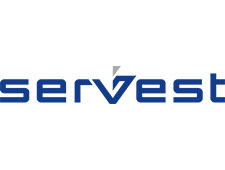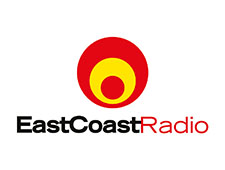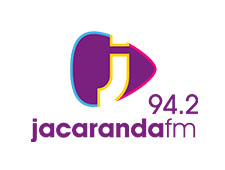KAGISO TISO HOLDINGS: Driven by Impact
Leading investment holdings company, Kagiso Tiso Holdings, is providing its investee companies with everything needed to make a difference in the communities in which they operate. Investing for the long-term, this is an organisation creating sustainable value for shareholders. Group CEO Paballo Makosholo tells Finance Focus more about growth opportunities.
Leading investment holdings business, Kagiso Tiso Holdings (KTH) – based in Sandton – is eyeing growth after a challenging period. The economic environment of 2020 and 2021 has seen portfolio value challenged for all, but planning for the long-term and building sustainability into the organisation as a cornerstone of success is helping KTH to prepare for future success.
KTH was established in 2011 when Kagiso Trust Investments and Tiso Group merged to form a powerful black-owned investment company with a strong and diversified portfolio. KTI was built by Eric Molobi, JJ Njeke and Tiso founded by David Adomakoh, Nkululeko Sowazi and Fani Titi.
Today, the organisation is led by Group CEO Paballo Makosholo – a Chartered Accountant, former non-executive Director of KTH and Chairman of the Investment Committee, as well as former COO of Kagiso Capital and non-executive Director of FirstRand amongst many board seats. His current responsibility amongst others involves chairing the boards of Juta, Future Managers, Urban Brew Studios, Mediamark and Kagiso Media Radio. He is a board member of MMH and he is passionate about development, serving on the board of Graça Machel Trust.
His vision is to grow the portfolio of investments through increasing exposure to existing assets while exploring new opportunities within the worlds in which the group is already strong and exploring new growing sectors: Media, financial services, education, food, and technology.
“We do not have a massive team and we are driven by the impact we would like to have,” he tells Finance Focus. “We want to focus on strategic worlds. It is not about having 10 or 15 small stakes, it’s more about having fewer assets with significant exposure. We also recognise that there may be other businesses that are attractive but given their size we may not be able to get the level of stake we want. As long as those investments are within the worlds we look at, we believe we can achieve great growth. For example, in the connectivity space with a Telco – because of their sheer size our holding will be relatively small, however we will receive great exposure in terms of growth. We would be happy to invest there, understanding the limitations.”
Currently, KTH boasts stakes in Kagiso Media, Servest, and Momentum Metropolitan to name just a few. These organisations employ thousands of people and contribute significantly to South Africa’s wider economy as well as the communities in which they operate. Any growth and expansion will always be centred around this mantra.
“Eric Molobi said our purpose is clear Kagiso must outgrow us as individuals. Years from now when we are qualified ancestors, it must still be here. It must still be serving people. He sadly passed away in 2006 but today, in 2022, we are talking about a KTH that is thriving. The key is how can we continue to be sustainable,” says Makosholo.
INVESTMENT STRATEGY
KTH aims to be the BBBEE investor of choice in South Africa through a clear and concise investment strategy. Simply, KTH aims for significant influence across a smaller range of large assets. There is a desire to drive pan-African exposure while developing a mix of cash generative and growth assets in both listed and unlisted investments. To date, this strategy has built the company into a shareholder of reference and Makosholo is keen on continuity.
“We are not a passive investor. We do not want to invest and stand back to watch money grow,” he says adding that KTH likes to get into businesses at board level, influencing strategy and managing investments hands on.
“What drives us is that it must be a good business with good management. We are not interested in replacing management,” he continues. “We like to give strategic direction where we can as we are primarily a financial investor and locator of capital. There may be a listed business where your active role is sitting on the board, or you may be in an unlisted business where governance structures are slightly different where you are on the board and management may use you more to further enhance value. We view ourselves as people that management can tap into to enhance value.”
He says relationships with investee companies are extremely strong and the active management strategy pays off in this regard.
“I have great relationships with all of the leaders where we have investments as that is our balance sheet. Where we have 100% ownership, I get quite involved in the business while allowing management space to run the business and operate effectively.”
When it comes to expanding further in Africa, KTH is not set to acquire or invest in assets in other African nations at this stage. The strategy is about assisting companies within the portfolio to grow in Africa and organically develop reach on the continent. Servest is keen to achieve a larger continental presence and KTH will back this ambition through collaboration.
“We are looking more at how the investments we have as KTH can grow into the continent so that the management can deliver on expansion opportunities. Any of the investments that we have are capable of growing on the continent and that is something we fully support.”
Already active in Nigeria through investment in Me Cure – a leading healthcare business – KTH was delighted to deliver materially on the continent as the first and the only hospital or centre in the entire West Africa to have in-house production of a medical radioactive isotope to stage all cancers using a PET-CT. “That is something we are very proud of,” highlights Makosholo.
Currently, new investments are funded through the KTH balance sheet and recycled capital. The result is no pressure to exit investments quickly and a long-term focus around sustainability can be installed – provided assets meet the KTH investment case. Of course, this is a challenging strategy to follow and can limit opportunistic transactions but the company is open and flexible and will invest where clear prospects are present. “We will invest in businesses that may not fit into our current worlds but create good value this will assist us to grow our capital base so that we can fund our core business,” explains Makosholo.
GROWTH OPPORTUNITIES
Asked about new investments and opportunities, Makosholo explains that the focus will always be on the worlds in which the company is active and, as such, an exciting new venture is soon to be launched in the financial services space to aid in the educational sphere, speaking to the core values KTH was founded on.
“Currently, we are looking at finalising our financial year and we are looking at a number of opportunities for the next financial year. Some are in financial services where we already have a presence.
“We have aspirations to grow in that world and to that end we are launching a new business in October. FutureWise is purpose driven educational-insurance business and its core is to secure the future of bright young minds.”
The concept is around life insurance and should a risk event take place – whether that is retrenchment or disability or death – individuals could receive a benefit that would cover school fees of children until the age of 23. This will be paid directly to the relevant educational institution, this is a product that will provide true peace of mind for many.
“We are providing an ecosystem which results in a product for life and not a product for death. You are able to enjoy that ecosystem while still alive and if a risk event has not taken place you have a savings pot which will help you and your child when they go to varsity. We have been busy with this product for some time and we are excited about its launch,” says Makosholo.
Away from financial services, the media world remains highly appealing and Makosholo is expecting growth here.
“We are aiming to get into new media through the existing media that we have. We are looking at opportunities in that space because we want to grow those assets. Within Kagiso Media we have a number of businesses in the radio, content, and publishing space. The way we think about media in the radio space is looking at how we can acquire audience and increase our share of audience. We understand that the advertising spend is highly competitive and in order to enhance market share, you have to grow your audience by being diverse and engaging. We are busy looking at our position in the media space. Our business Urban Brew Studios is telling authentic stories in Netflix and this is a deliberate strategy to participate in new media through provision of world-class content.”
The longer-term strategy across the portfolio is to enhance each world – diversifying in media, innovating in financial services, growing into new areas of education and professional development, and exploring new avenues in healthcare and technology, especially connectivity. “We can see that as an obvious aspect of growth,” details Makosholo. “We have a pillar around connectivity and we are constantly talking to people about opportunities to invest in that world.”
LONG TERM INVESTOR
The core focus in all business activity for KTH is meaningful transformation and black economic empowerment while making a sustainable difference in communities. To do this, the company must look beyond short-term challenges and plan for long-term impact.
Right now, both macro and microeconomic conditions hamper business and investor confidence and so the organisation must promote the image of trust and wealth in the form of knowledge, like the Ndoro symbol that adorns KTH branding.
“In the South African landscape, we see the issue of power constraining businesses before you add the inflationary pressures and rising interest rates. There is also flight of capital and that adds pressure to the economy. This does impact our portfolio and we are not the only ones experiencing these challenges,” admits Makosholo.
“We are aware that you must invest through the different economic cycles. We understand that there will be different cycles within the investment journey as long-term investors. The cycle we are in currently has been challenging, starting off with Covid and now geopolitical challenges stemming from Russia and Ukraine which impacts input costs for some of our businesses.
“We operate in South Africa and Africa – we are a black-owned business and that is our nature. Not all transactions that we do will be linked to BEE but we have credentials that we are very proud of and we fundamentally believe in the continual transformation of the South African economy. This continent must be a place where everyone can thrive and benefit from economic activity and we see ourselves continuing as a majority owned black investment company,” he says of the aim over the coming decades.
In terms of tangible, measurable targets, Makosholo is highly ambitious. Using the investments within the portfolio to create endless opportunity and achieve the vision of the founders, KTH can become a true African powerhouse, he says.
“When people look at an organisation like KTH they should see it in its various facets, positively impacting societies in which we operate. Whatever we do must be driven by our purpose and it must provide impact on society. I would be a happy man if this group becomes a R30 billion business – that would be, financially, a great outcome.”



